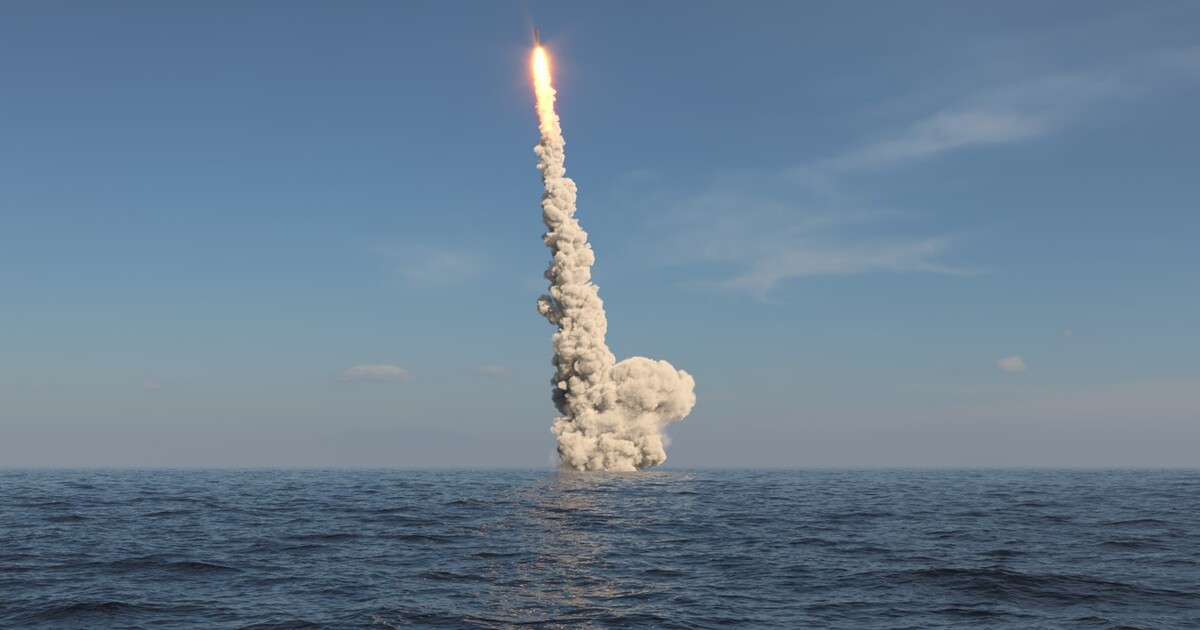Germany and a European Nuclear Deterrence Capability
German caution and hesitancy are mostly to blame for the lack of progress in developing a European nuclear deterrent. This must change.
March 21, 2024

A Strategic Intervention Paper (SIP) from the Global Ideas Center
You may quote from this text, provided you mention the name of the author and reference it as a new Strategic Intervention Paper (SIP) published by the Global Ideas Center in Berlin on The Globalist.
Germany’s commitment to remain a non-nuclear state has been a blessing for Europe in the past. Never before in its complicated history has Germany been in the beneficial geopolitical position of being “surrounded” by fellow EU and NATO members.
NATO membership without nuclear weapons made it possible to create a unique constellation for European security. To pave the way for unification, Germany re-affirmed its renunciation of the manufacture, possession of and control over nuclear, biological and chemical weapons in the 1991 Two plus Four Treaty.
The NPT Treaty would continue to apply in full to the united Germany. Therefore, Germany remains permanently committed “not to receive the transfer from or whatsoever of nuclear weapons or explosive devices or of control over such weapons or explosive devices directly, or indirectly.”
The new nuclear landscape
Today we are at a point of international tensions, including threats of a possible use of nuclear weapons emanating from Russia, as well as from other states with nuclear weapons such as North Korea, China and, in the future, also from Iran.
Germany will not remain unaffected if any of the states with nuclear weapons became involved in a possible conflict with the United States, a member of NATO or the EU.
Germany’s commitment to stand with Israel as a matter of “Staatsraeson” could also force it to act militarily. Germany needs to reconsider its non-nuclear status now to avoid being blackmailed in future conflict situations.
The German commitment to a non-nuclear status in international law has always been qualified insofar as the country, when ratifying the NPT Treaty and other commitments to remain non-nuclear, always reserved the right of self-defense anchored in Chapter VII, Article 51 of the UN Charter.
The Charter text is crystal clear saying that “Nothing in the present Charter shall impair the inherent right of individual or collective self-defense.”
When signing the NPT Treaty, the German Government expressed the expectation that the Treaty would preclude “any threat or use of force directed against the territorial integrity or the political independence of a State” by a nuclear weapon state.
Most importantly, Germany declared that “it signs the treaty in the expectation that it will not hamper European unification” and “that no provision of the treaty may be interpreted in such a way as to hamper the further development of European unification, especially the creation of a European Union with the appropriate competences.”
The Russia dimension
Russian nuclear threats today violate the NPT Treaty, as well as other commitments to arms control. Russia is threatening the use of nuclear weapons in order to protect its territorial annexations in Ukraine.
Putin dramatized his nuclear escalation in his February 24 State of the Union Address, saying that Western military support for Ukraine, as well as President Macron’s statement not to exclude the deployment of European troops on the ground in Ukraine, “really threatens a conflict with the use of nuclear weapons and the destruction of civilization.” And he added “Strategic Nuclear Forces are in a state of full readiness for guaranteed use.”
Former Russian President Dmitry Medvedev declared that Russia “would have to use nuclear weapons” if Ukraine’s counteroffensive succeeded in retaking Russian-held territory.
There should be no doubt that Russia’s imperial interest in regaining control over Ukraine even by military means – although the country has given up nuclear weapons – and Europe’s interest in preserving the independence of Ukraine, including its future EU membership, are bound to clash fundamentally in the future.
Vladimir Putin’s world view
In his long article “On the Historical Unity of Russians and Ukrainians,” Vladimir Putin declared that Russians and Ukrainians were one people with a common language and the common Orthodox faith.
He went on to demonstrate that Ukraine was never a real separate entity. On the contrary, “We are natural complementary economic partners” and we always had “a sense of unity” and “close cultural, spiritual and economic ties.”
It was the West that managed to turn Ukraine “into a barrier between Europe and Russia, a springboard against Russia.” “Aggressive Russophobia” drives Ukraine to implement a “forced change of identity.”
In Putin’s perception, Ukraine is now a fundamental threat for Russia. “The formation of an ethnically pure Ukrainian state, aggressive towards Russia, is comparable in its consequences to the use of weapons of mass destruction against us.”
According to Putin, today’s Ukraine is an anti-Russian project shaped by Neo-Nazis and the West and “We will never allow our historical territories and people close to us living there to be used against Russia.” And to those who will undertake such an attempt “I would like to say that this way they will destroy their own country.”
Putin’s threats and the perception that a Ukraine not in partnership with Russia would be the equivalent of the use of weapons of mass destruction against Russia must not be taken lightly.
The nuclear balance sheet
The seriousness of the Russian threat becomes evident when considering the Russian nuclear arsenal. In addition to its vast intercontinental nuclear capability, Russia has 2,000 tactical nuclear weapons targeting the continent.
On the Western side in Europe there are some 225 strategic nuclear warheads on submarines in Great Britain, and 290 strategic nuclear warheads in France.
While not negligible, European nuclear capabilities are seriously inferior compared with Russian nuclear weapons targeting Europe.
The neglected need for deterrence
The question for Europe now is whether the EU in the coming confrontation with Russia can preserve its interests if challenged and exposed to nuclear escalation. In view of the strategic vulnerability of Europe, the answer is “no.”
Without NATO as the backbone, Europe would not be able to achieve its own goals. Even worse: Without its own nuclear deterrent, the EU would be at risk to be blackmailed apart when confronted with Russian nuclear escalation.
Russia is also moving tactical nuclear weapons to Belarus, posing a direct nuclear threat for Poland from non-Russian territory.
The transfer of nuclear weapons to Belarus comes with a new military doctrine providing for the use of nuclear weapons. The entire European project would be at stake without being able to protect its own interests.
It is a matter of German national interest – as well as a matter of survival for Europe – to deter the threat of a use of nuclear weapons through strengthening European conventional as well as nuclear capabilities.
Germany must use its industrial base as well as its economic and financial resources to enable a European nuclear deterrence capability.
The way forward
The way to achieve this goal would be to renew Franco-German initiatives enlarging the national mission of the French nuclear potential.
French nuclear strategy has evolved substantially over time since Charles de Gaulle defined French nuclear strategy as a strictly national strategy. In 1995, French Prime Minister Alain Juppe offered to discuss a “concerted nuclear deterrence” with its European partners.
President Sarkozy also suggested a European nuclear dimension for French nuclear weapons. The most recent proposal for a European nuclear arms dialogue came from President Macron suggesting building a common European strategic culture.
It was German caution and reservation on all things nuclear that prevented any progress at the European level.
Building on the Lancaster Agreements
Today, France and Germany should engage in a new initiative to add a European dimension to the Franco-British Lancaster Agreements of November 2010. Once set in motion, the initiative should take on a multinational format that would include key European countries most interested in developing a European nuclear deterrence capability.
Italy, Spain, Poland as well as the Nordic countries Sweden and Finland would most likely join France, Britain and Germany in moving a nuclear European project forward.
The Lancaster Agreements would form an ideal basis for a credible European nuclear deterrence strategy. Despite Brexit, Britain still has strong interests in the security of continental Europe. Its firm military support for Ukraine in its fight for independence and survival as a nation is proof of this interest.
Hand in hand with NATO
It must be made clear from the beginning that the creation of a European nuclear deterrence capability does not undermine NATO. The credibility of a European deterrent system would suffer if transatlantic ties were weakened.
It is not only the Russian nuclear threat that puts the survival of the EU at risk. Regarding EU-China relations, the huge discrepancy in military capabilities between Europe and China puts the EU into an inferior geopolitical position.
Most recently, China increased its nuclear potential dramatically and, by 2035, would be on a similar level of nuclear forces as the United States and Russia.
International arms control
The New START Treaty will expire in 2026. Russia has already suspended the treaty. More importantly, China sees its nuclear potential not only as a defensive shield, but also as a potential sword. Ultimately economic relations and trade with China, if not based on an equal footing, will lead to weakening EU negotiating positions.
North Korean intercontinental nuclear missiles could also involve Europe. Attempts to threaten South Korea could drag the United States into such a conflict. Europe would have to stand on the U.S. side, potentially also being exposed to North Korean threats.
Iranian nuclear ambitions could curtail any significant role for Europe in the Middle East. The German commitment to stand with Israel as a matter of Staatsraeson, if unaddressed militarily, could turn out to be an empty promise.
A military capability of the EU to act beyond its borders would help to secure European economic interests, in particular crucial European energy supplies.
Conclusion
The project of building a European nuclear deterrent is an extremely complex undertaking. But the EU has instruments to engage in a nuclear program.
Permanent Structured Cooperation (PESCO), as stipulated in the European Union’s Security and Defense Policy (CSDP), is a flexible instrument which could provide the framework for a new nuclear initiative based on the Lancaster Agreements.
A nuclear project will also need to be accompanied by serious steps in the conventional realm. Current European armies with a predominantly national outlook need to be brought closer to a true European Army.
In theory the numbers of available military personnel are quite impressive. The combined military personnel of the EU stand at 1,9 Million. This is larger than the U.S. armed forces, but because of the lack of a common purpose and much inferior military equipment, EU forces lack the necessary deployment capability.
Today it would be difficult for Europe to prevail in a larger conventional military conflict. This is an additional reason why a nuclear deterrent is critically important.
There have been several initiatives to build a nuclear capability based on the French and British nuclear forces in the past. German caution and hesitancy are mostly to blame for the lack of progress in these efforts. Germany’s deep aversion to all things nuclear must change. Now is the time to act.
Takeaways
German caution and hesitancy are mostly to blame for the lack of progress in developing a European nuclear deterrent. This must change.
Germany needs to reconsider its non-nuclear status now to avoid being blackmailed in future conflict situations.
Today we are at a point of international tensions including threats of a possible use of nuclear weapons emanating from Russia, North Korea, China and in the future also from Iran.
Russian nuclear threats today violate the NPT Treaty, as well as other commitments to arms control. Russia is threatening the use of nuclear weapons in order to protect its territorial annexations in Ukraine.
In addition to its vast intercontinental nuclear capability, Russia has 2,000 tactical nuclear weapons targeting the continent in its arsenal. In Europe, Britain has some 225 strategic nuclear warheads and France has 290.
The question for Europe now is whether the EU in the coming confrontation with Russia can preserve its interests if challenged and exposed to nuclear escalation. In view of the strategic vulnerability of Europe, the answer is "no."
It must be made clear from the beginning that the creation of a European nuclear deterrence capability does not undermine NATO. The credibility of a European deterrent system would suffer if transatlantic ties were weakened.
Without NATO as the backbone, Europe would not be able to achieve its own goals. Even worse, without its own nuclear deterrent, the EU would be at risk to be blackmailed apart when confronted with Russian nuclear escalation.
Today it would be difficult for Europe to prevail in a larger conventional military conflict. This is an additional reason why a nuclear deterrent is critically important.
Germany must use its industrial base as well as its economic and financial resources to enable a European nuclear deterrence capability.
A Strategic Intervention Paper (SIP) from the Global Ideas Center
You may quote from this text, provided you mention the name of the author and reference it as a new Strategic Intervention Paper (SIP) published by the Global Ideas Center in Berlin on The Globalist.


